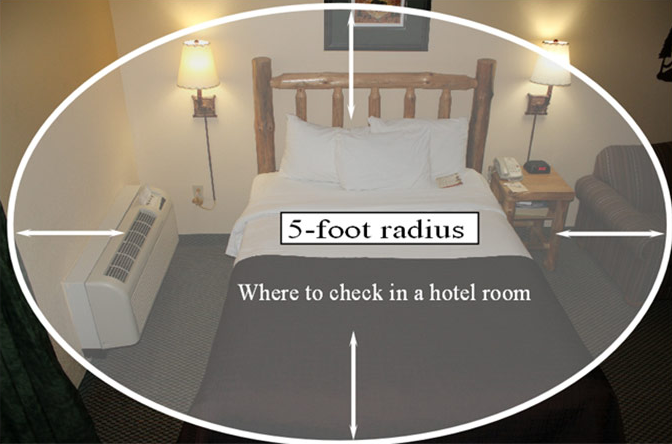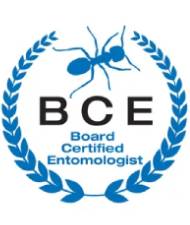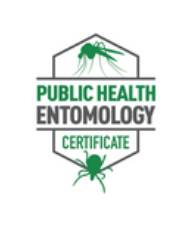Exceptional Pest Management for Business Properties
We Protect Commercial and Multifamily Properties
Send us an inquiry
Response to BED BUGS IN HOTELS & LODGING
Developed by the National Pest Management Association
Bed Bug Control in Hotels, Lodging, and Rentals
Commercial lodging is particularly vulnerable to bed bug problems because of the steady stream of guests arriving. Each guest is a potential source of introducing bed bugs into a new location. These pests are expert hitchhikers and are carried in on luggage and clothing.
Lodging facilities may face lawsuits if bed bugs bite guests, and they can suffer from damaging public relations if the media learns about the incidents. Managers need to be proactive in monitoring for bed bugs and aggressive in dealing with them to prevent angry guests and bad publicity. This protocol provides guidelines for lodging managers to help them recognize and effectively respond to bed bug problems.
BE PROACTIVE
Develop a written "bed bug action plan" with specific policies, directions, and responsibilities for the following:
How to Confirm the Presence of Bed Bugs
If you suspect that your hotel or other commercial lodging is infested with bed bugs, the first thing you need to do is get confirmation. You may be able to verify the infestation yourself if the bugs are in prominent places. Search the rooms to find evidence. Check every bed, carefully removing blankets and sheets from mattresses and box springs to look for dark fecal matter. Also, walk around each room, stopping to search any area where there is an unusually strong odor—bed bugs are associated with a musty smell.
Bed bugs, however, tend to hide from sight and can occupy areas you wouldn't think to look. They can hide in smoke detectors, electrical sockets, cracks in walls and floors, and amongst office stationery and furniture. Examine the walls and floors, paying particular attention to corners and other dimly lit places where bed bugs like to hide during the day. Locating bed bugs in your hotel is a daunting task that can be done more effectively by professionals.

Response to BED BUGS IN APARTMENTS
Developed by the National Pest Management Association
Bed Bug Control in Apartments
Early detection and prompt, effective action are critical in preventing bed bugs from becoming established in apartment buildings. Once established, bed bugs are among the most challenging and expensive pests to control. Successful elimination demands aggressive action and the perseverance to track down every last bed bug. This document provides guidelines for apartment managers that will help them recognize a bed bug infestation, find an immediate solution, and minimize future bed bug problems.

BE PROACTIVE
Develop a written “bed bug action plan” in advance of problems being identified. A plan should include specific procedures and responsibilities for responding to a bed bug incident, including:
WHAT TO AVOID
Provide training to critical staff (office, custodial, and maintenance):
If the bed bug problem is widespread, consider the following actions:
How to respond to a bed bug incident in an apartment:
Residents can help prevent bed bugs by:
Management can help prevent bed bugs by:
If you suspect that you have bed bugs in your apartment…
You should search each room. Start with the bedrooms—remove all bedding and take the liners off the bottom of the box springs. Bed bugs like to hide, so be sure to check corners, cracks in walls and floors, and other dimly lit places. If you detect a strong, musty odor or find fecal matter in these hiding places, you may have a bed bug problem.
For a more extensive and efficient search of your home, contact ZipZap Termite & Pest Control.
When our professionals come to inspect your house, we ask that you also allow them to search the interior of your car. You may have unknowingly brought the bed bugs into your home from a secondary location.
Once you know you have bed bugs in your home, you need to get rid of them. Postponing treatment will only increase the likelihood of a widespread infestation. Home remedies have limited effectiveness and can be costly and complicated to use. At ZipZap Termite & Pest Control, we have the experience and equipment needed to deal with small and large infestations of bed bugs.
Steps to prepare your home for bed bug extermination:
Our Board-Certified Entomologist is an expert in the identification and removal of bed bugs. He will tailor the treatment plan to your unique situation so that we can deliver effective service.
The staff here at ZipZap has the knowledge and training to implement pest control treatments safely.
We use approved chemicals (dust and low-odor aerosols), as well as heat methods to eliminate bed bugs.
Don't entrust your hotel or apartment building to just any company—contact ZipZap Termite & Pest Control for quality bed-bug elimination.
ZIPZAP TERMITE & PEST CONTROL
If you find a bug in or around your home and need it identified, take a picture. Then text or email to the text line or email address below.
Please DO NOT text to the (816) 407-PEST number.



